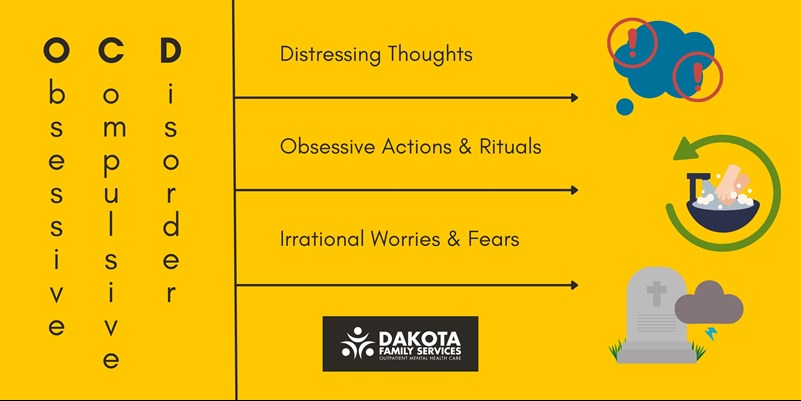Obsessive-Compulsive Disorder (OCD)
Definition
Obsessive-compulsive disorder (OCD) is a serious, long-term anxiety disorder characterized by severe, disabling, and distressing thoughts, obsessions, and compulsive actions. In addition to causing problems at school and work, OCD can have a serious impact on relationships.
OCD is a common, chronic mental disorder that affects nearly 2 percent of the U.S. population. It is a chronic condition with symptoms that wax and wane over time. Medication and/or therapy can significantly manage symptoms, decrease the intrusiveness of obsessive thoughts, and increase a sense of well-being.
Key Things to Know About OCD
- OCD symptoms can make it difficult for sufferers to function in daily life.
- OCD rarely causes problems until a child reaches adolescence, when obsessive fears and compulsive behaviors may interfere with schoolwork or friendships.
- The most common obsessions are fears of contamination and germs, worries about causing harm to self or others, concerns about order/symmetry/perfectionism and recurrent thoughts of inappropriate sexual content.
- Compulsions are repetitive behaviors or mental acts that are performed with the aim of reducing anxiety and stress. They include excessive hand washing or cleaning, counting or praying aloud, arranging and ordering objects in a particular way, hoarding items that have no value (trash), and repeating routine behaviors such as checking locks many times before going to bed.


